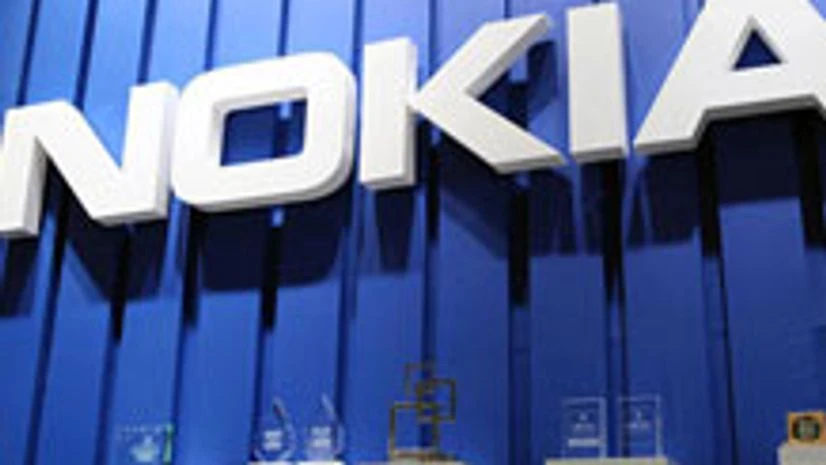In an interim relief to Nokia and paving the way for its proposed deal with Microsoft, the Delhi High Court on Thursday directed the income-tax department to lift a freeze on the Finnish mobile firm’s Chennai plant.
The tax dispute between the government and Nokia, however, will continue separately.
The court has asked Nokia to deposit Rs 2,250 crore in an escrow account. If Nokia loses, the tax liability could be as high as Rs 21,153 crore, including interest and penalty. This means the tax liability will not be shifted to Microsoft after the deal, as had happened in the case of Vodafone in 2007.
More From This Section
| WEAK SIGNALS |
Nokia tax case so far
|
Nokia has also been asked to give a letter of guarantee that it will comply with the court’s order. If the company defaults in future tax payments, the department can approach the court again.
Nokia Corporation Finland and Nokia India will jointly be responsible for payment of income tax. Besides, Nokia and the tax department are free to reach a mutual agreement on the tax dispute.
“Nokia acknowledges the decision by the Delhi High Court to release its Indian assets, including its Chennai facility, for the planned transfer to Microsoft. Our understanding is that the decision allows for the transfer of the assets. However, Nokia has been asked to meet a number of conditions in the ruling and still needs to provide the authorities with additional documentation. We expect these conditions to be in line with international treaties and practices,” Nokia India said in a statement. It added: “Nokia continues to expect the transaction with Microsoft to close in the first quarter of 2014.”
BMR Legal Partner Mukesh Butani said: “The question before the high court was the quantum of its anticipated demand from Nokia by way of guarantee to protect the tax administration’s interest. As I understand, in its pleadings before the court, Nokia had offered the initial amount of Rs 2,250 crore as a security. I wonder what was the tax administration’s wisdom to seek sums in multiples of the amount by adding penalties and double disallowance. In my view, by doing so, the administration has lost an opportunity to build goodwill with an ambassador of India and an early investor.”
“Core tax dispute in relation to classification of payment as royalties and consequent tax-withholding obligation is pending for resolution. However, providing a critical relief, the Delhi High Court has ordered unfreezing of the assets at Chennai plant, permitting the sale to Microsoft to go through. To protect the interest of revenue, the court has imposed certain conditions on the taxpayer and prescribed safeguard measures,” said Sunil Jain, partner, J Sagar Associates.
“The order is fair and balanced and brings relief to Nokia India, and to Nokia in general. The issue of Nokia’s taxability is a contentious one — not only pending before the appropriate authority for consideration but also is the subject matter of mutual agreement procedure between the competent authorities of India and Finland,” said Daksha Baxi, executive director, Khaitan & Co.
Nokia had agreed to sell its mobile phone business to the US-based IT company, Microsoft, in a ^5.4-billion ($7.2-billion) deal in September. However, the deal had hit a hurdle as the Chennai manufacturing facility, one of Nokia’s biggest phone-making factories, was seized by the I-T department.
The high court verdict has come at an appropriate time for Nokia, as the deadline for inclusion of the plant under its deal with Microsoft was December 12. If this deadline was missed, the plant would have been kept out of the deal. The Chennai facility employs 30,000 people in India, directly and indirectly.
In March 2013, tax authorities had served a notice to Nokia, demanding Rs 2,080 crore in taxes for wrongfully claiming exemption on royalty payments made against supply of software by the company’s parent firm for five years starting 2006-07.
The I-T department claimed Nokia was downloading software from its parent company in Finland to manufacture mobile devices. According to the I-T Act, royalty paid on downloaded software attracts TDS (tax deducted at source) at the rate of 10 per cent. However, tax authorities alleged these transactions were shown in the audit report under procurement of ‘raw materials’ to evade taxes. After search-and-seizure operations in January, the department had frozen assets at the Chennai facility.
Nokia offered to pay Rs 2,250 crore to settle the case but the proposal was rejected by the department. Earlier this week, Finnish finance ministry officials had met their Indian counterparts on the issue. The meeting, which also reviewed the double-taxation avoidance agreement between the two countries, remained inconclusive.
What Nokia says
“Nokia acknowledges the decision by the Delhi High Court today to release Nokia’s Indian assets, including its Chennai facility, for the planned transfer to Microsoft," said Poonam Kaul, Director-Communications, Nokia IMEA..
She added, "Our current understanding is that this decision allows for the transfer of the assets. However, Nokia has been asked to meet a number of conditions in the ruling, and still needs to provide the authorities with additional documentation. Nokia expects these conditions to be in line with international treaties and practices."
The company will now start to prepare for the planned transfer of the assets, but notes that there are still a number of statutory clearances that remain before the assets can transfer. Nokia repeats its call for the Indian government to work with urgency to facilitate the other approvals needed for the transfer and secure employment for the tens of thousands of employees involved, she said.
Nokia continues to expect the transaction with Microsoft to close in the first quarter of 2014.

)
